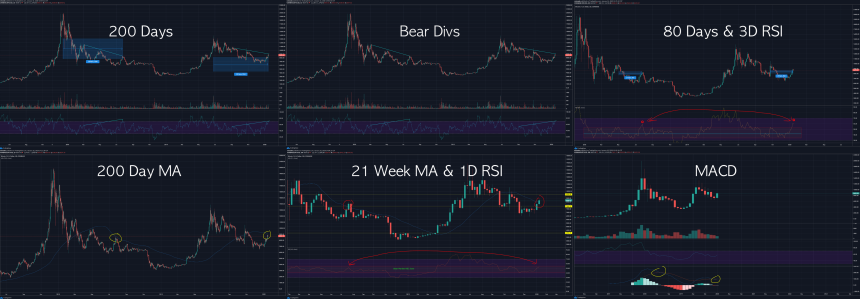Reason to trust

How Our News is Made
Strict editorial policy that focuses on accuracy, relevance, and impartiality
Ad discliamer
Morbi pretium leo et nisl aliquam mollis. Quisque arcu lorem, ultricies quis pellentesque nec, ullamcorper eu odio.
The cryptocurrency community is currently exploding with exuberance, as Bitcoin may have broken out from its recent downtrend into a full-blown reversal, and the rest of the crypto space has seen altcoins going on hundred percent rallies reviving talk of a bull run once again.
However, there are a number of similarities between the current rally in Bitcoin markets compared to the July 2018 rally, which could suggest that $6,400 wasn’t Bitcoin’s bottom, and a deeper breakdown will arrive the weeks ahead. Here’s the case as to why $6,400 wasn’t the bottom.
$6,400 May Not Have Been Bitcoin’s Bottom, If Fractal Confirms And History Repeats
Top analysts within the cryptocurrency industry, see many similarities between the current price action within Bitcoin’s recent rally from lows around $6,400, and a rally that took place back in July 2018.
Related Reading | This Surprising Cryptocurrency May Hold Clues to Bitcoin and Ethereum’s Final Bottom
The similarities between the two are uncanny and could act as a plausible case for why Bitcoin hasn’t bottomed, indicating that $6,400 was just a false bottom designed to give traders hope – hope that ultimately gets shattered, causing capitulation before the real bottom is put in. The flip-flopping in sentiment would be the psychological beating necessary to cause even the strongest hands to fold when the “bottom” eventually breaks.
More detailed thread on why I still believe $6400 was a false bottom.https://t.co/VL42uLwH0c
— A Voice of Reason in a Sea of Insanity (@sometrader78) January 16, 2020
As one expert crypto analyst points out, both the July 2018 rally and current rally were the result of an inverse head and shoulders formation confirming.
On larger timeframes, the monthly MACD is crossing over currently as did back in July 2018. The Relative Strength Index on the weekly and three-day timeframes are reaching similar areas on the gauge as it did back in July 2018 also. In both instances, there was a break of the 21-week EMA that didn’t end up holding.

Interestingly, the timeframe from the most previous rally top to the active rally top was roughly the same distance from April 2018’s top to July 2018’s top – roughly 80 days. And the time distance from the initial parabolic rally top to the current rally during both cycles was roughly 200 or so days.
Related Reading | Blind Bitcoin Bias Gives Crypto Technical Analysis a Bad Rap
There’s also a bearish divergence on the RSI on daily timeframes, dating back as far as the prior two peaks – just like the last time around.
While it is only possible to say that a bottom is in in hindsight, it’s understandable as to why many analysts believe the bottom is in. Bitcoin did confirm a common bottoming pattern, and broke through downtrend resistance, however, given all of the above similarities, it’s wise to approach any future price action with caution, as the bottom may not be in, and Bitcoin could break down to set new lows.


















